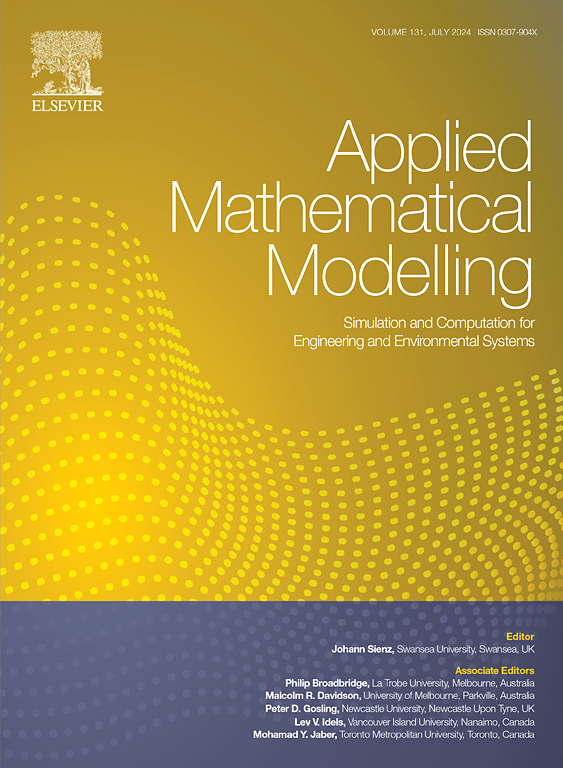具有状态不等式约束的非线性系统最优跟踪控制的自适应策略迭代学习算法
IF 4.4
2区 工程技术
Q1 ENGINEERING, MULTIDISCIPLINARY
引用次数: 0
摘要
针对状态不等式约束下的最优跟踪控制问题,提出了一种新的策略迭代算法。该算法旨在优化一般非线性系统在指定时间范围内的代价函数。首先,将时变误差系统的动力学转化为增广系统,便于系统模型的学习。随后,采用并行学习的方法,利用瞬时数据和历史数据估计增强系统的参数。然后提出自适应策略迭代算法来学习最优控制策略。收敛性分析表明,该算法有效地降低了系统的实际跟踪成本。最后,通过仿真验证了算法的有效性。本文章由计算机程序翻译,如有差异,请以英文原文为准。
An adaptive policy iteration learning algorithm for optimal tracking control of nonlinear systems with state inequality constraints
This paper proposes a novel policy iteration algorithm to solve the optimal tracking control problem with state inequality constraints. The algorithm aims to optimize the cost function for general nonlinear systems over a specified time horizon. Firstly, the dynamics of the time-varying error system is transformed into an augmented system, thereby facilitating the learning of the system model. Subsequently, concurrent learning is employed to estimate the parameters of the augmented system via instantaneous and historical data. The adaptive policy iteration algorithm is then developed to learn the optimal control strategy. Convergence analysis shows that the algorithm effectively reduces the system's actual tracking cost. Finally, simulations have been conducted to validate the effectiveness of the proposed algorithm.
求助全文
通过发布文献求助,成功后即可免费获取论文全文。
去求助
来源期刊

Applied Mathematical Modelling
数学-工程:综合
CiteScore
9.80
自引率
8.00%
发文量
508
审稿时长
43 days
期刊介绍:
Applied Mathematical Modelling focuses on research related to the mathematical modelling of engineering and environmental processes, manufacturing, and industrial systems. A significant emerging area of research activity involves multiphysics processes, and contributions in this area are particularly encouraged.
This influential publication covers a wide spectrum of subjects including heat transfer, fluid mechanics, CFD, and transport phenomena; solid mechanics and mechanics of metals; electromagnets and MHD; reliability modelling and system optimization; finite volume, finite element, and boundary element procedures; modelling of inventory, industrial, manufacturing and logistics systems for viable decision making; civil engineering systems and structures; mineral and energy resources; relevant software engineering issues associated with CAD and CAE; and materials and metallurgical engineering.
Applied Mathematical Modelling is primarily interested in papers developing increased insights into real-world problems through novel mathematical modelling, novel applications or a combination of these. Papers employing existing numerical techniques must demonstrate sufficient novelty in the solution of practical problems. Papers on fuzzy logic in decision-making or purely financial mathematics are normally not considered. Research on fractional differential equations, bifurcation, and numerical methods needs to include practical examples. Population dynamics must solve realistic scenarios. Papers in the area of logistics and business modelling should demonstrate meaningful managerial insight. Submissions with no real-world application will not be considered.
 求助内容:
求助内容: 应助结果提醒方式:
应助结果提醒方式:


